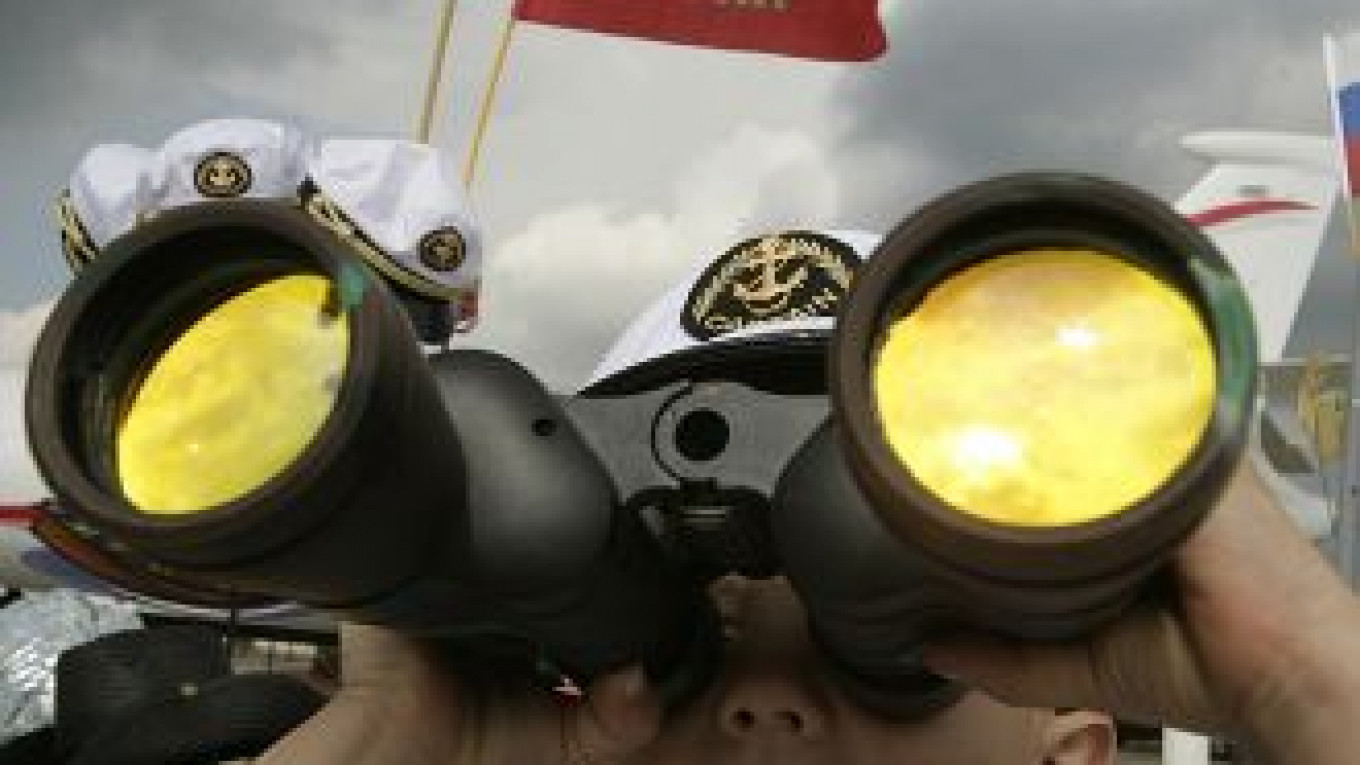Owe a lot of money? You might want to reconsider driving your car to the MAKS air show.
Federal marshals will be running license plate numbers at the site of the biennial event, and if you're in serious debt, they could seize your car.
Debts can be paid back at convenient mobile terminals located at the air show, taking place Aug. 16 to 21 in the Moscow satellite town of Zhukovsky. But if you refuse, the marshals have the right to seize property — such as a cell phone or even a car — equal to the amount of money owed, Federal Court Marshals Service spokesman Anatoly Gara said.
It will be hard to check those not arriving by car, he added.
The same was done at the MAKS air show in 2009. Marshals did seize a vehicle, Gara said, and worked on cases totaling 12 million rubles of debt — though that was not the actual amount recovered. Often people were simply informed of debt and handed a summons, he said.
These checks have been agreed upon with the show's organizers, a spokesperson said. But the Aviasalon company, which did construction for the event, does not have any agreement for joint activities with court marshals, general director Vladimir Borisov said via his press service.
Marshals are hunting for debtors not only at air shows. The service also uses a system called "road marshal," whereby license plate numbers are run through a database on unpaid transportation taxes. In several regions, marshals are looking for debtors at car inspection points, the spokesman said.
But such searches are rare, he added. More often marshals organize "mobile points" at airports or various events where they propose that people voluntarily check whether they have any debts and then pay back those debts at terminals. For instance, this was done to people leaving Sheremetyevo Airport as well as a tour operator exposition in St. Petersburg.
In 2010, there were 290,700 cases of prohibiting citizens to travel abroad due to unpaid debts, according to the marshals service web site.
Information on whether enforcement proceedings have begun or whether departure abroad is blocked is available at regional court marshal divisions or in the electronic database on their web sites, said Sergei Smirnov, a lawyer at Yukov, Khrenov & Partners.
Read the original Vedomosti article here.
A Message from The Moscow Times:
Dear readers,
We are facing unprecedented challenges. Russia's Prosecutor General's Office has designated The Moscow Times as an "undesirable" organization, criminalizing our work and putting our staff at risk of prosecution. This follows our earlier unjust labeling as a "foreign agent."
These actions are direct attempts to silence independent journalism in Russia. The authorities claim our work "discredits the decisions of the Russian leadership." We see things differently: we strive to provide accurate, unbiased reporting on Russia.
We, the journalists of The Moscow Times, refuse to be silenced. But to continue our work, we need your help.
Your support, no matter how small, makes a world of difference. If you can, please support us monthly starting from just $2. It's quick to set up, and every contribution makes a significant impact.
By supporting The Moscow Times, you're defending open, independent journalism in the face of repression. Thank you for standing with us.
Remind me later.






